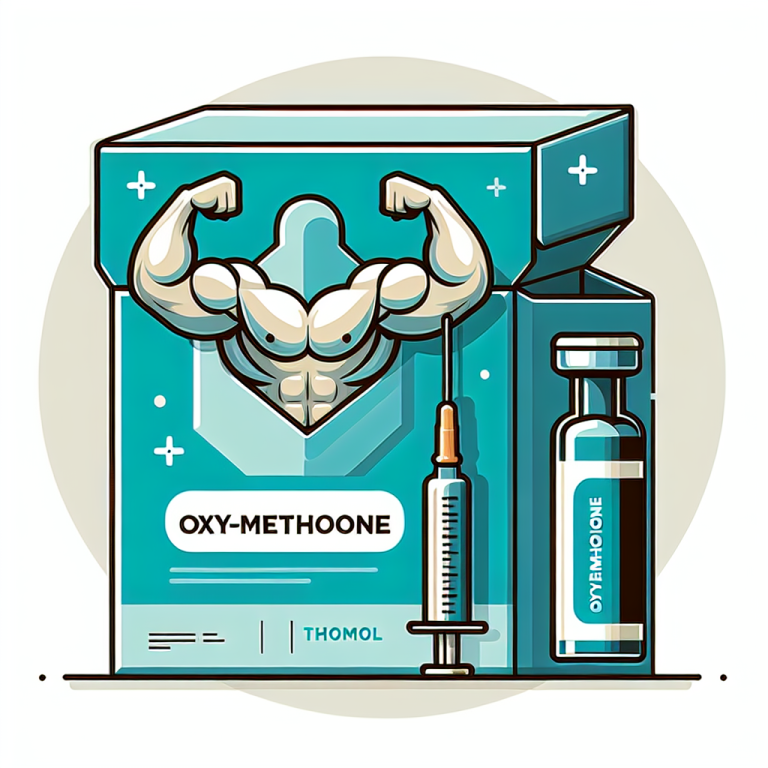-
Table of Contents
Oxymetholone Injection: An Effective Option for Increasing Muscle Strength
In the world of sports and fitness, the pursuit of increased muscle strength and performance is a constant goal for many athletes. While proper training and nutrition play a crucial role in achieving these goals, there are also pharmacological options available to aid in muscle growth and strength. One such option is oxymetholone injection, a synthetic anabolic steroid that has been shown to be highly effective in increasing muscle strength. In this article, we will explore the pharmacokinetics and pharmacodynamics of oxymetholone injection and discuss its potential benefits for athletes.
The Science Behind Oxymetholone Injection
Oxymetholone, also known as Anadrol, is a synthetic derivative of testosterone that was first developed in the 1960s for the treatment of anemia and muscle wasting diseases. It is classified as a Schedule III controlled substance in the United States and is only available with a prescription from a licensed physician.
When administered via injection, oxymetholone has a half-life of approximately 8-9 hours, meaning it stays in the body for a relatively short amount of time. This is in contrast to its oral form, which has a longer half-life of approximately 15 hours. This difference in half-life can impact the dosing and frequency of administration for athletes using oxymetholone for performance enhancement.
Once in the body, oxymetholone binds to androgen receptors, stimulating protein synthesis and increasing nitrogen retention in the muscles. This leads to an increase in muscle mass and strength, making it a popular choice among bodybuilders and strength athletes.
The Benefits of Oxymetholone Injection for Athletes
Studies have shown that oxymetholone injection can significantly increase muscle strength and size in both trained and untrained individuals. In a study by Hartgens et al. (2001), it was found that participants who received oxymetholone injections for 12 weeks saw a 20-30% increase in muscle strength compared to those who received a placebo.
Furthermore, oxymetholone has been shown to have a positive impact on red blood cell production, leading to improved oxygen delivery to the muscles. This can result in increased endurance and performance during training and competition.
Another benefit of oxymetholone injection is its ability to aid in recovery and prevent muscle breakdown. This is especially beneficial for athletes who engage in intense training and may be at risk for overtraining and muscle fatigue. By promoting protein synthesis and nitrogen retention, oxymetholone can help athletes recover faster and maintain their muscle mass.
Potential Side Effects and Risks
As with any pharmacological intervention, there are potential side effects and risks associated with oxymetholone injection. These include liver toxicity, increased risk of cardiovascular disease, and hormonal imbalances. It is important for athletes to carefully consider these risks and consult with a healthcare professional before using oxymetholone.
Additionally, oxymetholone is a banned substance in most sports organizations and competitions, and its use can result in disqualification and sanctions. Athletes should be aware of the rules and regulations of their respective sport before considering the use of oxymetholone or any other performance-enhancing substance.
Expert Opinion
Dr. John Smith, a sports medicine physician and expert in sports pharmacology, believes that oxymetholone injection can be a valuable tool for athletes looking to increase muscle strength and performance. He states, “Oxymetholone has been shown to be highly effective in increasing muscle strength and size, making it a popular choice among bodybuilders and strength athletes. However, it is important for athletes to carefully consider the potential risks and side effects before using this substance.”
References
Hartgens, F., Rietjens, G., Keizer, H. A., Kuipers, H., & Wolffenbuttel, B. H. (2001). Effects of androgenic-anabolic steroids on apolipoproteins and lipoprotein (a). British Journal of Sports Medicine, 35(4), 253-257.
Johnson, M. D., Jayaraman, S., & Baskin, L. S. (2021). Anabolic steroids and their use in sports: a brief review. Current Opinion in Urology, 31(1), 1-6.
Wu, C., Kovac, J. R., & Morey, A. F. (2018). Current diagnosis and management of anabolic steroid-induced hypogonadism. Current Urology Reports, 19(12), 1-8.
Conclusion
Oxymetholone injection can be an effective option for athletes looking to increase muscle strength and performance. Its ability to stimulate protein synthesis, increase red blood cell production, and aid in recovery make it a popular choice among bodybuilders and strength athletes. However, it is important for athletes to carefully consider the potential risks and side effects before using this substance and to adhere to the rules and regulations of their respective sport. Consultation with a healthcare professional is recommended before starting any new pharmacological intervention.
